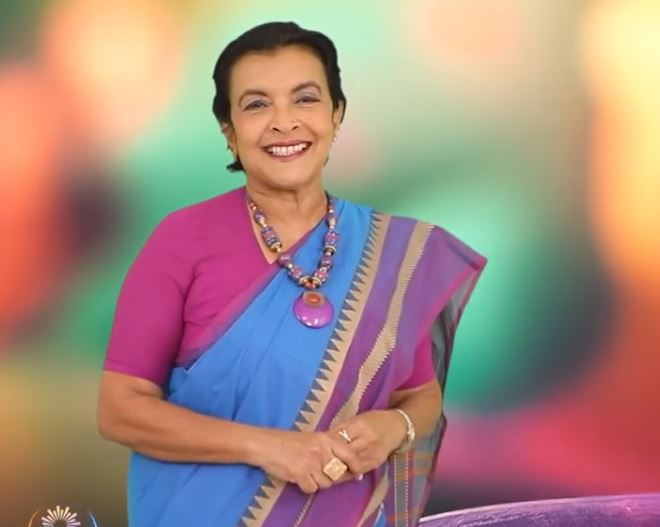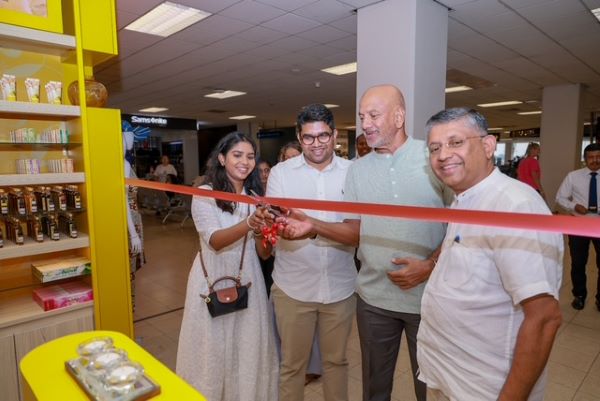Finding Your Footing: Understanding and Addressing Unsteady Walking in Older Age – By Dr Harold Gunatillake

As we age, we might notice subtle changes in our bodies, and one common concern is feeling unsteady on our feet or experiencing a loss of balance. While it’s easy to dismiss these moments, persistent unsteadiness can significantly impact our confidence, independence, and overall well-being.
Understanding the reasons behind this and knowing what steps to take can make a real difference in maintaining a healthy and active life.
Research conducted in Sri Lanka indicates that a considerable proportion of older adults encounter challenges with ambulation, with specific studies suggesting that approximately 19.4% of elderly individuals report experiencing difficulties in walking.
Why Does Balance Become a Challenge with Age?
Our sense of balance is a complex system relying on several parts of our body working together seamlessly: our inner ear, eyes, muscles, and nerves. As we age, changes in these areas can lead to balance issues. Some common contributors include:
* Sensory Changes: Our vision might not be as sharp, and changes in the inner ear (vestibular system) can disrupt our sense of spatial orientation. Conditions like Benign Paroxysmal Positioning Vertigo (BPPV), where specific head movements trigger dizziness, are more common in older adults.
Image Source : sciencedirect
BPPV is thought to be caused by little calcium carbonate crystals (otoconia) coming loose within the semicircular canals.
In a normal situation, these crystals are stabilised in small saccules attached to the semicircular canal. Loss of balance occurs when these crystals dislodge from the saccule due to ageing.
- Muscle Weakness (Sarcopenia): Age-related loss of muscle mass, particularly in the legs and core, can make it more challenging to maintain stability while

* Nerve Issues (Neuropathy):
Conditions like diabetes can damage nerves, particularly in the feet, leading to a reduced sense of touch and making it difficult to feel the ground properly.
Underlying Medical Conditions:
Several health issues can affect balance, including heart disease, stroke, thyroid problems, and even high or low blood pressure. *
Medication Side Effects: Certain medications, such as sedatives or some antihypertensive drugs, can cause dizziness and unsteadiness. It’s always wise to discuss your medications with your doctor.
- Fear of Falling: Sometimes, a previous fall or even the worry of falling can lead to a more cautious and sometimes less stable
Interestingly, research in Sri Lanka has highlighted that foot problems, vision problems, and hypertension are particularly associated with recurrent falls among older adults. This emphasises the importance of addressing these specific issues.
Why is Addressing Unsteady Walking Important?
Ignoring balance problems can have serious consequences. Falls are a significant concern for older adults, leading to injuries like fractures, which can significantly impact mobility and quality of life. A fear of falling can also lead to reduced activity levels, which in turn contribute to further muscle weakness and social isolation.
Taking Steps Towards Better Balance:
The good news is that there are many things you can do to improve your balance and reduce the risk of falls:
- Stay Active with Balance Exercises: Regular exercise is Focus on activities that improve strength, muscle tone, and balance. Simple exercises you can do at home include:
- Heel-to-toe walks: Walking in a straight line, placing the heel of one foot directly in front of the toes of the
- Side leg raises: While holding onto a chair for support, slowly lift one leg out to the side, keeping it straight and
- Single leg stands: Holding onto a sturdy object, try standing on one leg for a few seconds, then switch
- Sit-to-stand exercises: Practising getting up and down from a chair without using your
- Make Your Home Safer: Simple modifications can significantly reduce the risk of falls:
- Ensure good lighting, especially in hallways and
- Remove clutter from
- Secure rugs to prevent
- Install grab bars in the bathroom, near the toilet and in the
- Use non-slip mats in the bathroom and kitchen to prevent slips and falls.
- Get Regular Vision and Hearing Checks: Ensure your vision and hearing are optimal, as these senses play a vital role in
- Review Your Medications: Discuss with your doctor any medications you are taking and whether they may be contributing to your balance
- Wear Sensible Footwear: Choose low-heeled shoes with good support and non-skid Avoid walking barefoot or in socks on smooth floors.
- Be Mindful of Your Surroundings: Pay attention to uneven surfaces and take your time when walking, especially in unfamiliar
When to Seek Professional Help:
It’s essential to consult your doctor if you experience frequent or sudden episodes of unsteadiness or dizziness. They can help identify the underlying cause and recommend appropriate treatment or referrals to specialists, such as physiotherapists, who can provide personalised balance training programs. In Sri Lanka, resources like the National Secretariat for Elders may also offer support and information on elder care services.
Staying steady on your feet is vital for maintaining an active and fulfilling life as you age. By understanding the potential causes of unsteady walking and taking proactive steps to improve your balance, you can feel more confident and enjoy your independence for a longer period. Remember, it’s never too late to work on your balance and take control of your well-being.
Why Does Balance Become a Challenge with Age?
Our sense of balance is a complex system relying on several parts of our body working together seamlessly: our inner ear, eyes, muscles, and nerves. As we age, changes in these areas can lead to balance issues. Some common contributors include:
- Sensory Changes: Our vision might not be as sharp, and changes in the inner ear (vestibular system) can disrupt our sense of spatial Conditions like Benign Paroxysmal Positioning Vertigo (BPPV), where specific head movements trigger dizziness, are more common in older adults.
- Underlying Medical Conditions: Several health issues can affect balance, including heart disease, stroke, thyroid disorders, and variations in blood Your searches for hypertension and other health-related topics indicate an awareness of these potential links.
- Medication Side Effects: Certain medications, such as sedatives or some antihypertensive drugs, can cause dizziness and It’s always wise to discuss your medications with your doctor.
- Fear of Falling: Sometimes, a previous fall or even the worry of falling can lead to a more cautious and sometimes less stable
Interestingly, research in Sri Lanka has highlighted that foot problems, vision problems, and hypertension are particularly associated with recurrent falls among older adults. This emphasises the importance of addressing these specific issues.
Why is Addressing Unsteady Walking Important?
Ignoring balance problems can have serious consequences. Falls are a significant concern for older adults, leading to injuries like fractures, which can significantly impact mobility and quality of life. A fear of falling can also lead to reduced activity levels, contributing to further muscle weakness and isolation.
Taking Steps Towards Better Balance:
The good news is that there are many things you can do to improve your balance and reduce the risk of falls:
- Stay Active with Balance Exercises: Regular exercise is Focus on activities that improve strength, muscle tone, and balance. Simple exercises you can do at home include:
- Heel-to-toe walks: Walking in a straight line, placing the heel of one foot directly in front of the toes of the
- Side leg raises: While holding onto a chair for support, slowly lift one leg out to the side, keeping it straight and
- Single leg stands: Holding onto a sturdy object, try standing on one leg for a few seconds, then switch
- Sit-to-stand exercises: Practising getting up and down from a chair without using your
- Make Your Home Safer: Simple modifications can significantly reduce the risk of falls:
- Ensure good lighting, especially in hallways and
- Remove clutter from
- Secure rugs to prevent
- Install grab bars in the bathroom, near the toilet and in the
- Use non-slip mats in the bathroom and kitchen to prevent slips and falls.
- Get Regular Vision and Hearing Checks: Ensure your vision and hearing are optimal, as these senses play a vital role in
- Review Your Medications: Discuss with your doctor any medications you are taking and whether they may be contributing to your balance
- Wear Sensible Footwear: Choose low-heeled shoes with good support and non-skid Avoid walking barefoot or in socks on smooth floors.
- Be Mindful of Your Surroundings: Pay attention to uneven surfaces and take your time when walking, especially in unfamiliar
When to Seek Professional Help:
It’s essential to consult your doctor if you experience frequent or sudden episodes of unsteadiness or dizziness. They can help identify the underlying cause and recommend appropriate treatment or referrals to specialists, such as physiotherapists, who can provide personalised balance training programs. In Sri Lanka, resources like the National Secretariat for Elders may also offer support and information on elder care services.
Staying steady on your feet is vital for maintaining an active and fulfilling life as you age. By understanding the potential causes of unsteady walking and taking proactive steps to improve your balance, you can feel more confident and enjoy your independence for a longer period. Remember, it’s never too late to work on your balance and take control of your well-being.
Conclusions:
Be aware that you are prone to get symptoms of imbalance, as mentioned, as you age.
Start exercising, such as doing stretches, body movements against resistance, and most of all, daily regular walks to minimise age- related imbalance situations.
I trust that this article proves to be beneficial, and I encourage you to share it with your elderly friends.
End
Postscript: Arch rubs
Individuals may utilise arch rubs to massage the underside of the foot. To employ this technique:
Hold the top of the foot with one hand. Using the fingers of the other hand, stroke along the length of the arch.
Execute this repeatedly, from the heel to the ball of the foot. It is advisable to attempt this daily upon rising in the morning.
If it helps please write to me, thanks





















